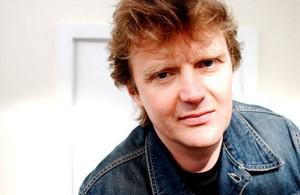The Russia connectionThe man who knew too much
In November 2006, on orders of Vladimir Putin, Russian operatives used radioactive material to poison and kill Alexandr Litvinenko, a former KGB colleague who had turned a fierce critic of the Russian leader, and who was living with his family in London. Yesterday, the British government froze the assets of the two Russian agents – one of them has been awarded a medal by Putin, and is now a leading member of United Russia, Putin’s political party, in the Russian parliament. Ten years later, in November 2016, a leading British nuclear forensic scientist – who was part of the 2006 investigation and who was instrumental in tying the nuclear material used in the killing to the two Russian agents — was found dead in his home, after returning from an academic research trip to Russia. It was the 14th Russia-related killing on British soil since 2006. The number of individuals with inside knowledge of the Putin regime and its practices — and who have met an untimely end in mysterious circumstances — is growing, and British lawmakers urge the government to show more resolve in investigating this string of killings.

Aleksander Litvinenko, believed murdered by Plutonium 120 // Source: .wikispaces.com/yahoo.com
The U.K. government has frozen the assets of two Russians secret service operatives who, in 2006, killed Aleksander Litvinenco, a former officer of the Federal Security Service (FSB, the successor organization of the KGB). Litvinenko, who had become a fierce critic of Vladimir Putin, was living in London, and the two operatives slipped a small amount of radioactive material into his tea during a meeting at a London hotel.
The Home Office on Monday issued the order to freeze the assets of Andrei Lugovoi and Dmitry Kovtun under the terms of the Antiterrorism, Crime, and Security Act of 2001.
Judge Robert Owen, who led the British government inquiry into the Litvinenko killing, said on 21 January that he was certain Lugovoi and Kovtun killed Litvinenko by placing a lethal dose of polonium 210 in his tea during a meeting on 1 November 2006.
Litvinenko died of radiation poisoning several days later.
Scientific investigators working for the inquiry found traces of polonium 210 in hotels, restaurants, and aircraft used by Lugovoi. Lugovoi was treated for radiation poisoning in Moscow in December 2006.
In 2007, Lugovoi was elected a member of the Duma – the Russian parliament – as a member of United Russia, the Putin-led party which won 64 percent of the votes. In 2015 Putin awarded him a state medal “for services to the motherland.”
The death of Matthew Puncher
In a related matter, British lawmakers have expressed their unease with the official government investigation of the mysterious November 2016 death of a nuclear scientist who was leading the forensic investigation into the killing of Litvinenko.
Dr. Matthew Puncher was found stabbed to death days after his return from an academic research trip to Russia.
Ten years earlier, in 2006, his research was instrumental in identifying the source of the radiation poisoning which killed Litvinenko, and in tying the nuclear material to Lugovoi and Kovtun.
BuzzFeed reports that Puncher’s body was found riddled with knife wounds in 2016. The pathologist who conducted the autopsy said he could not “exclude” the possibility that someone else was involved in the death, but concluded the injuries were self-inflicted.
BuzzFeed last year revealed that U.S. intelligence agencies had passed MI6 evidence connecting Puncher’s death – and 13 others – to Russian operatives, but that the U.K. authorities had treated each of the cases as a non-suspicious death.
Lord Rooker, a Labor peer, wrote to Prime Minister Theresa May in November 2017, asking why the scientist had been sent to Russia on state business in the immediate aftermath of the Litvinenko verdict. “It was known how explosive the issue was between the U.K. and Russia, so why was Dr. Puncher not withdrawn?” he asked.
Lord Rooker’s letter also asked the government to explain why none of the 14 Russian-linked deaths, of which the British security services were advised by the U.S. intelligence community (and which were exposed by BuzzFeed News) has been treated as suspicious by the British police.
In a House of Lords speech in June last year, Lord Rooker called for all 14 cases to be fully investigated.
Other British politicians, among them Ben Bradshaw, the former Labor cabinet minister, and the former Tory minister John Whittingdale, have joined Lord Rooker in calling for a more thorough government investigation of the Russia-related deaths.
There have been growing concerns in the United States about the Putin government’s killings of rivals, critics, and individuals who know too much (see “Ukrainian businessman with links to Trump, Russia dies in mysterious circumstances,” HSNW, 6 March 2017). A report by Democratic members of the Senate’s foreign relations committee this month (“Report details two decades of Putin’s attacks on democracy, U.S. vulnerability to Kremlin’s interference,” HSNW 11 January 2018) warned Western governments not to ignore a series of suspected Russian assassinations in Britain and the United States
